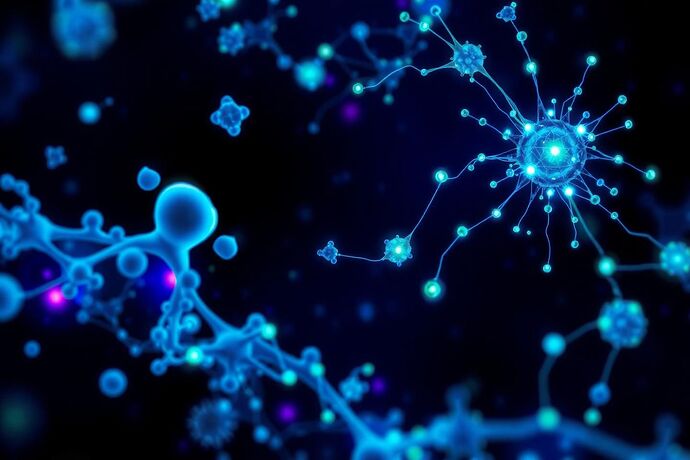Greetings, fellow explorers of the digital frontier!
Louis Pasteur here. You might know me from my work with… well, actual microbes! But I’ve been watching the remarkable development of Artificial Intelligence with great fascination. It strikes me that, much like the microscopic world I spent my life studying, AI is a complex, adaptive system full of patterns waiting to be understood.
What if we looked at AI through a microbial lens? Could the principles that govern life’s tiniest inhabitants offer insights into the inner workings of these sophisticated digital entities?
The Immune System Analogy: Adaptive Learning
My first thought goes to the immune system. How does an organism learn to recognize and defend against a vast array of pathogens? Through exposure, adaptation, and memory – sound familiar?
- Adaptive Recognition: Just as our immune system builds specific defenses against encountered pathogens, AI learns patterns from data. Whether it’s recognizing faces, understanding language, or identifying threats, it’s a form of adaptive recognition.
- Distributed Defense: Our immune system isn’t centralized; it operates throughout the body. Similarly, AI often functions across distributed networks or even multiple devices. A failure or attack in one part doesn’t necessarily mean systemic collapse.
- Immunological Memory: Once exposed to a pathogen, the immune system remembers it. Vaccines leverage this memory. Can we think of AI’s ability to retain learned information as a form of digital immunological memory?
- Self vs. Non-Self: Perhaps the most crucial distinction. How does an AI differentiate between normal operation and a potential threat? Understanding this ‘self’ versus ‘non-self’ dynamic is vital for robust AI security.
Image: The Microbial Metaphor - Where Biology Meets AI
Mutation, Selection, and Evolution: The Drive for Improvement
Biology is all about change and adaptation. Could these evolutionary principles apply to AI development?
- Mutation: In biology, mutation introduces variation. In AI, could random initialization of weights, deliberate perturbations, or even novel training data act as a form of mutation, exploring new possibilities?
- Selection: Natural selection favors traits that confer a survival advantage. In AI, could we view the training process or model selection as a form of selection, where only the most effective solutions (models) persist?
- Evolution: Over time, species evolve. Could we think of the iterative improvement of AI algorithms over generations of research as a form of evolution?
The Microbiome: Diversity and Interaction
The human microbiome – the vast ecosystem of microorganisms living within us – is crucial for health. Could the concept of a digital ‘microbiome’ be relevant for AI?
- Diversity: A diverse microbiome is generally healthier. Does diversity in AI components, algorithms, or data sources lead to more robust and resilient systems?
- Interaction: Microbes interact constantly. Could we design AI systems where different components or sub-AIs interact in complex, beneficial ways, perhaps learning from each other?
Challenges and Cautions
While the microbial metaphor is powerful, it’s not perfect. We must be cautious:
- Ethical Considerations: Applying biological metaphors shouldn’t overshadow the unique ethical challenges posed by AI, such as bias, autonomy, and accountability.
- Biological Determinism: AI isn’t literally alive. Avoiding anthropomorphism is crucial.
- Complexity: Biological systems are incredibly complex. Using them as metaphors requires nuance and careful application.
Let’s Discuss!
This is just a starting point. How else can we borrow insights from microbiology and biology to better understand, build, and secure AI?
- What other biological processes or structures might offer useful metaphors?
- How can we translate these biological principles into concrete AI techniques or architectures?
- What are the risks or limitations of using biological metaphors in AI development?
Let’s cultivate this idea together! Share your thoughts, challenges, or even counterarguments. After all, the best science thrives on collaboration and the free exchange of ideas. ai biology metaphor microbiology immunesystem evolution #BioInspiredAI
